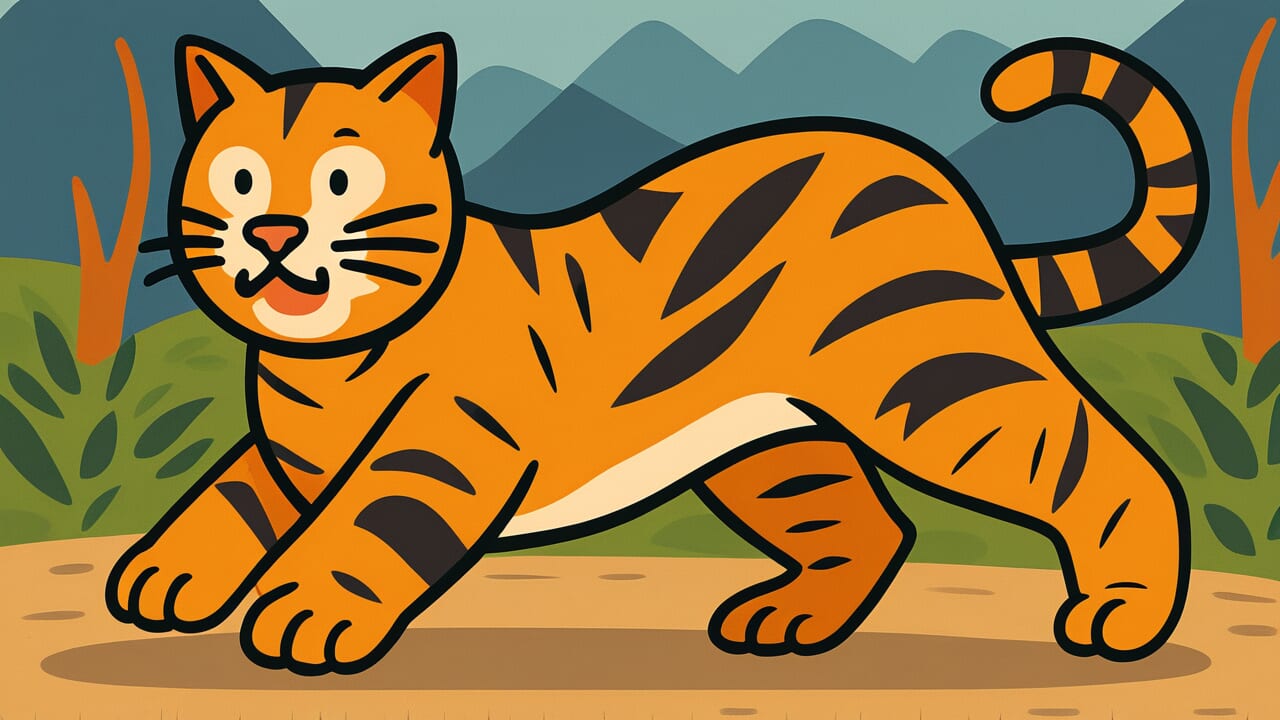How to Read “Can become a cat or can become a tiger”
Neko ni mo nareba tora ni mo naru
Meaning of “Can become a cat or can become a tiger”
“Can become a cat or can become a tiger” is a proverb that describes a person’s flexible ability to respond to different situations and people.
You can be gentle like a cat or strong like a tiger, depending on what the moment requires.
This proverb views human adaptability in a positive light. It shows that having two sides is actually a strength.
When facing weak opponents or peaceful situations, you act gently like a cat. When dealing with strong opponents or tough circumstances, you stand firm like a tiger.
The proverb recognizes that being able to switch between these approaches is a valuable skill.
People use this saying when describing someone who changes their attitude based on the situation, especially in negotiations or relationships.
It’s not about being fake or two-faced. It’s about having the wisdom to respond appropriately to each unique circumstance.
This isn’t just empty flattery toward everyone. It’s a survival strategy that recognizes different situations call for different responses.
Even today, this flexible approach remains an important ability in business and personal relationships.
Origin and Etymology
No clear historical records explain exactly where this proverb came from. However, the structure of the phrase itself offers interesting insights.
The combination of “cat” and “tiger” captures the essence of this saying. Cats are familiar animals that symbolize gentleness and calm.
Tigers, on the other hand, represent fierce and powerful beasts. This image has been deeply embedded in Japanese consciousness since ancient times.
What’s fascinating is that these two animals are actually biological relatives. Both belong to the cat family and share fundamental traits.
This biological connection makes them a perfect metaphor for human duality. We’re one person with different expressions, just like cats and tigers are both felines.
The phrase “ni mo nareba” is also significant. It doesn’t just mean changing from one thing to another.
It means the same being shows different faces depending on circumstances. This reflects the understanding that humans naturally possess flexibility.
We have the built-in ability to adjust our behavior to match different situations.
During the Edo period, this kind of flexible response was highly valued as a survival skill. The social environment of that era may have helped spread this proverb.
Usage Examples
- He can become a cat or can become a tiger depending on who he’s negotiating with, which is why clients trust him so much
- That teacher is gentle with students but strict with parents—truly someone who can become a cat or can become a tiger
Universal Wisdom
The proverb “Can become a cat or can become a tiger” reveals humanity’s essential adaptive ability and the wisdom needed to survive.
We humans never live with just one face. A gentle parent at home becomes a strict boss at work.
Someone soft with friends stands firm against injustice. This multi-faceted nature is the essence of being human.
This proverb has endured because it contains more than just social tactics. It holds deep wisdom about survival strategy.
Always acting the same way can sometimes put you in danger or hurt others. The ability to read situations and respond appropriately is essential for living in complex social environments.
But this proverb doesn’t just praise quick changes. Both the cat and the tiger exist as true aspects within the same person.
Gentleness and strength, flexibility and firmness—these aren’t contradictions. Having both makes you complete.
Our ancestors condensed this profound understanding of human nature into just eleven characters. That’s the brilliance of this wisdom.
When AI Hears This
This proverb brilliantly expresses the “nonlinearity” inherent in the complex system of human relationships.
Nonlinearity means input and output don’t scale proportionally. For example, doubling your kindness doesn’t double someone’s affection.
Instead, when you cross a certain threshold, the other person’s attitude changes dramatically.
In chaos theory, tiny differences in initial conditions expand exponentially over time. A small difference between “slightly cold” and “slightly warm” in your first interaction amplifies through repeated exchanges.
The other person distances themselves slightly, you react to that, they become more guarded, and this chain reaction continues.
Eventually, the difference becomes as extreme as “cat” versus “tiger.”
What’s fascinating is that this process is completely deterministic yet unpredictable. Clear cause-and-effect relationships exist, but you can’t know in advance where the critical point lies.
This resembles meteorologist Lorenz’s discovery: “A butterfly flapping its wings in Brazil can cause a tornado in Texas.” The structure is identical.
This proverb suggests the existence of “bifurcation points” in human relationships. Small differences in how you respond create critical points that irreversibly change the relationship.
Lessons for Today
This proverb teaches you about balancing consistency with flexibility in modern life.
Today’s society often praises people who “never waver.” But true strength isn’t rigidity.
Real strength means holding core values while adapting appropriately to different situations.
The important thing is not to feel ashamed of being able to become both cat and tiger.
Gentle with subordinates, strict with wrongdoing. Calm with family, passionate about your dreams. These aren’t contradictions—they’re proof of your richness as a person.
However, this flexibility differs from compromising your beliefs. Changing your attitude based on circumstances is not the same as conveniently switching positions.
You can change your expression while maintaining your axis precisely because you have a solid core.
Starting today, try accepting your multi-faceted nature. The gentle you and the strong you are both the real you.
Your ability to choose the optimal version of yourself for each situation is your greatest weapon.



Comments